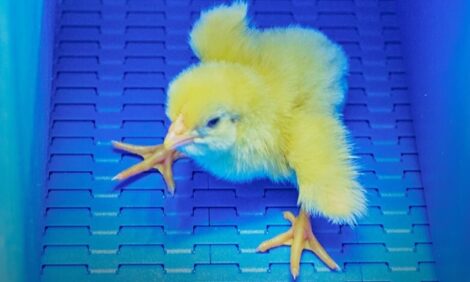



Cross-Protection Vaccination Studies
Avian influenza (AI) outbreaks are originated by different Hemagglutinin (HA) serotype viruses, including the H5 and H7 that are involved in highly pathogenic (HP) avian influenza.All others, including the commonly spread H9N2, are classified as low pathogenic (LP). H5 and H7 may also be LP, and with the risk of increase of pathogenicity by genome recombination or reassortment likely to evolve towards HP. In this context and in countries in which vaccination is part of the control measures of avian influenza, programmes have to be adjusted according to the needs in terms of protection against mortality, clinical signs associated with the disease outbreaks, as well as field virus shedding in infected birds. Recent examples showed that designing vaccination programmes helped control AI outbreaks in different countries facing either HP or LP outbreaks.
CROSS-PROTECTION STUDIES AGAINST HPAI H5N1
In the context of HPAI H5N1 (H5Nx more recently) control, the prime-boost strategy based on the use of a day-old application of a fowlpox vector vaccine expressing a H5 hemagglutinin (vFP-AIV H5) from a progenitor virus, and a revaccination around two to three weeks of age of an inactivated H5 vaccine, was evaluated in cross-protection against Asia H5N1 HPAI challenges (Bublot et Al, 2007, Steensels et Al, 2007, Richard-Mazet A et Al, 2014), in the context of Egypt H5N1 outbreaks (Arafa et Al, 2015). In all studies serological monitoring helped demonstrate immunogenicity of the vaccination programme. The prime-boost protocol together with the hatchery vaccination programme represents a fast option for control of H5N1, and possibly several related recent H5Nx outbreaks, either in chickens or in ducks, as regards to the lengthy process needed for new vaccine development.
CROSS-PROTECTION STUDIES AGAINST HPAI H7N3
In the context of recent outbreaks of HPAI H7N3, a proposed fast option was to study induced cross-protection induced by an available H7N3 Italy inactivated vaccine and monitored by clinical protection against challenge, as well as antibody production. This was performed recently in the context of the last outbreaks of HPAI H7N3 in Central America with evidence of cross-protection against the recent isolates of that part of the world (Rojo et Al, 2015). Further investigation on possible AIV H7 prime-boost approach has been initiated (Bertran et Al, 2013).
CROSS-PROTECTION STUDIES AGAINST AI H9N2
Current situation is mostly enzootic circulation of two major lineages of the H9N2 virus in chickens, the Chinese Y280 and the G1-like in Middle-East and Northern Africa, with minor differences in terms of lineages and punctual outbreaks described in other parts of the world, like Korea. Europe was hit recently with turkey cases. Vaccination is commonly performed, especially with combined vaccines for prevention of Newcastle disease together with AI H9N2. Evidences of genetic drifts are shown. Cross-antigenicity studies of the current vaccines is a must do. Studies of cross-antigenicity using a wide number of recent virus isolates from diverse countries from North Africa to the Indian sub-continent demonstrated the relevance of the continuous use of these vaccines in field (Herrmann et Al, 2015). A cross-protection study using a 2010 field isolate as a challenge virus helped understand the mechanisms involved by designing a cold stress protocol needed for induction of mortality and clinical signs (Delvecchio et Al, 2015). One formulated vaccine formulated with the proper antigen and with the proper adjuvant controls the LPAI H9N2 virus spread and its detrimental consequences in poultry production in a given cluster of countries, either with the respective Chinese Y280-based vaccine, or with the G1-like-based vaccine in Middle-East.
Existing developed AI vaccines, H5, H7 or H9 may be used in vaccination programmes customised to the ever evolving situation worldwide, as long as laboratory cross-protection studies are performed to help demonstrate efficacy.
Stephane LEMIERE
Boehringer Ingelheim AH, Lyon, France
_________________________________
Information from the Avian Flu Forum hosted by Boehringer on April 2017








